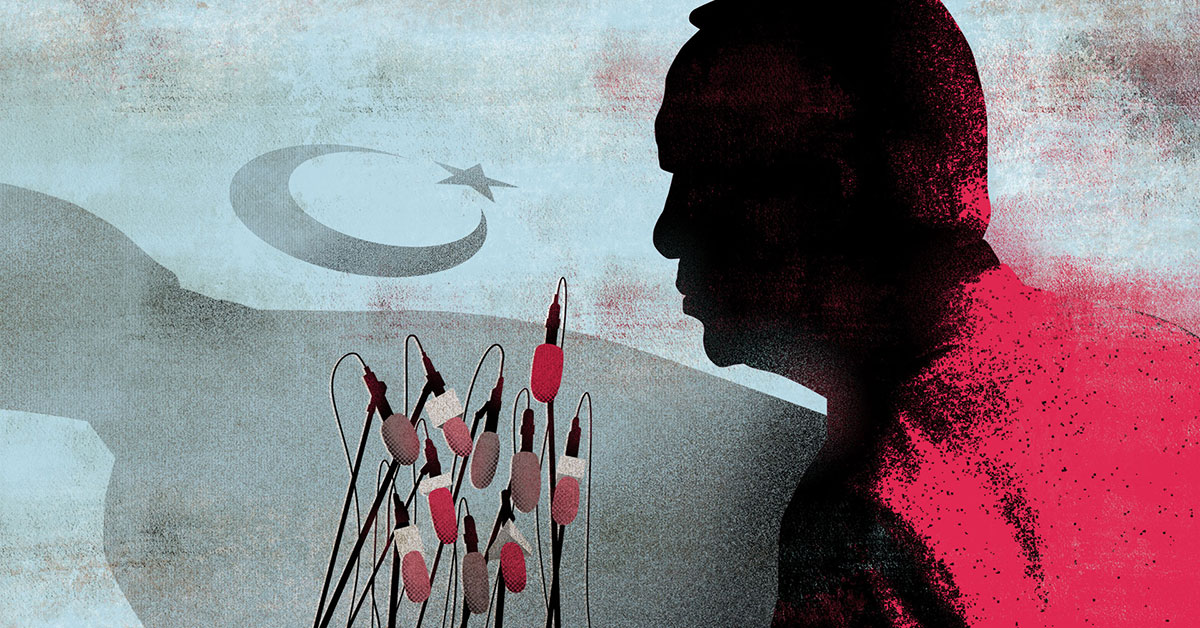Turkey and Azerbaijan Create a Unified Turkic Media Platform: Moscow Loses Influence in the Region

Ankara
and Baku, within the framework of the “Turkic
World 2040” strategy, have begun work on establishing a unified Turkic media platform. The project
envisions reducing the presence of Russian media, gradually stopping the
broadcasting of Russian TV channels, and closing several Russian-language
schools in the Turkic-speaking countries.
The
main goal of the initiative is to create a single information space for the countries of the Organization of Turkic States (OTS) –
Azerbaijan, Turkey, Kazakhstan, Kyrgyzstan, and Uzbekistan. According to the
initiators, the new media network is intended to promote Turkic identity, strengthen cultural ties, and reduce the influence of external players,
primarily Russia.
Key
Project Details:
- The
establishment of a Turkic news TV
channel and a network of regional editorial offices in OTS countries;
- The
launch of educational programs and
courses in Turkic languages instead of Russian-language ones;
- Support
for locally produced films and TV
series with national narratives;
- Possible
involvement of Kazakhstan and
Uzbekistan in co-financing the project.
Political
analysts believe that this new media strategy could pose a serious challenge to Russia’s soft power
in the region. Traditionally, Moscow has maintained its cultural and political
influence in the post-Soviet space through the Russian language, educational
programs, and the popularity of
Russian media.
“What we are witnessing is Ankara and Baku offering an alternative to the Russian information sphere. If the project succeeds, in 5–7 years, young people in Central Asia and the Caucasus will look more towards Ankara than Moscow”, said Central Asian regional policy expert Arman Tokhtakhunov.
For Russia, this means a potential weakening of influence in key spheres – from politics to economics. The most vulnerable will be Kazakhstan and Kyrgyzstan, where the Russian language still plays an important role in education and state institutions. For Turkey and Azerbaijan, the project represents a chance to transform the OTS into a full-fledged geopolitical bloc, where media will become a tool for shaping a common identity.
The
first phase of the platform’s development is planned to be completed by 2027. By that time, a satellite TV channel, a unified internet portal in Turkic languages,
and several joint educational centers
are expected to be launched.
Analysts
predict that Moscow will try to counter
this process by strengthening support for Russian-language schools and
expanding its own broadcasting. However, amid growing nationalism and Turkic
solidarity, this is expected to become increasingly difficult.
 Latest news
Latest news Latest news
Latest newsGreece Plans to Exclude Turkiye from Future Defense Contracts
20.Feb.2026
U.S.-Based Mars Launches Major Investment Project in Kazakhstan
20.Feb.2026
Parliamentary Elections 2026 in Armenia as a Geopolitical Referendum
20.Feb.2026
Russia and Ukraine Fail to Reach Agreement in Geneva
19.Feb.2026
The South Caucasus in U.S. Foreign Policy: Implications of High-Level Visits for Russian and Chinese Regional Aspirations
18.Feb.2026
Ukraine Imposes Personal Sanctions on Belarusian President Alexander Lukashenko
18.Feb.2026
72% Against the Authorities: Economic Dissatisfaction Hits Record Levels in Turkiye
17.Feb.2026
Bulgaria Strengthens Defense: First American Stryker Vehicles Delivered
17.Feb.2026
Moscow Criticizes Plans to Build a U.S.-Backed Nuclear Power Plant in Armenia
16.Feb.2026
Washington expects Tbilisi to strengthen ties amid regional changes
15.Feb.2026

 28 Feb 2026
28 Feb 2026









